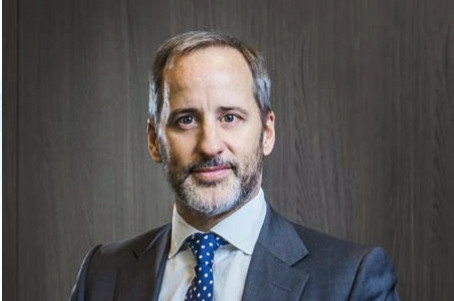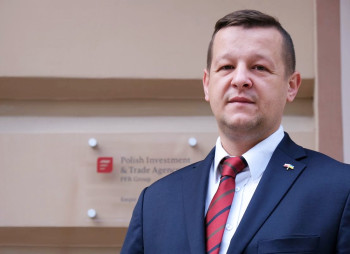How would you characterize and assess the resilience of the Ukrainian economy?
Considering where the country was post-Maidan Revolution, the Ukrainian economy has shown quite a bit of resilience over the past few years. Probably not enough to drive significant growth in cross-border M&A, but domestic M&A has been stronger, as companies or investors that have cash, are able to capitalize on distressed situations. While the local currency has been stable and much has been done in the area of government reforms, GDP growth rates need to accelerate in order to entice investors to take on more risk in Ukraine.
What advantages does Ukraine possess to attract investment from the global market?
Ukraine is a diverse and cost-efficient economy with a highly skilled labor force. In fact, Ukraine has most of the necessary ingredients to be a major manufacturing hub for Europe – low-cost, skilled human resources, engineering prowess, geographical location and improving infrastructure. Moreover, in the case of IT and agriculture, Ukraine has the capability to lead the world in terms of innovation and productivity. This is especially true in the areas where IT and agriculture converge, such as in the burgeoning field of AgTech. Ukraine is a hidden gem that has been tarnished by its past, but with a bit of good PR, could be discovered.
What impact do cultural differences have on cross-border M&A?
Language is still probably the biggest cultural barrier for most cross-border transactions, and that barrier is getting lower every year. The number of Ukrainians travelling abroad increases annually and when they do travel to foreign countries, they bring back knowledge and cultural understanding. This translates to business and makes bridging cultural barriers easier. Most companies that have attracted capital through the international capital markets have adapted their businesses to report regularly to their foreign investors and communicate with them frequently through conferences and board structures. Even more so, the Ukrainian IT sector has seamlessly integrated into the global software and hardware development market. I’ve long believed that geographically Ukraine is solidly European – now I feel that culturally it is as well.
How would you define success for an international investor operating in Ukraine?
If we include the start of Ukraine’s history as an independent state in 1991, then the country has gone through five or six major political and/or financial crises, depending on how you count them. Asset values were historically very cheap, while risk and potential returns were very high. So, in my mind, in the last 25 or more years of Ukraine’s independence, “success” has been defined as merely “survival”. If you survived the high-risk environment, then you were likely to experience high investment returns. Success. However, as Ukraine implements reforms to make business easier and integrates into the European and global marketplace, simply surviving is no longer good enough. Investors today are looking to Ukraine not to provide some short-term cost benefit, but rather to build a long-term sustainable advantage into their regional or global value chains. This means that in addition to less expensive labor, foreign investors are looking for productive talent and ingenuity.
How important is reputation? What do international investors expect from business?
I think that, for the most part, a good business or professional reputation hinges on the ability to be successful without engaging in rent-seeking behaviors or depending on some unique political relationship. Most of Ukraine’s ‘old economy’ was built on such relationships, which has tarnished the reputation of a number of businesses and businesspeople. Today, foreign investors want to see that a business can compete on its own merits and that its success does not depend on a political connection or some legislative loophole. The best way to build a solid reputation is to incorporate corporate governance best practice as early as practicably possible. Having a quality Board of Directors and working with experienced board members can add an enormous amount of value to a business and its owners, all the while improving their reputation.
Effective corporate governance and corporate culture are essential for a successful business. How does this apply to your company?
Dragon Capital is a partnership and, as such, our partners operate a board-like structure. Moreover, because we are a regulated financial institution operating under the laws of the European Union and the European Common Marketplace, we have a strict set of rules and guidelines that we adhere to in our daily work. This has driven our own corporate culture as we have evolved from a 15-person entrepreneurial start-up to a 200-person company, which is integrated into the global financial system. As we continue to build our business together with well-known global partners and investors, we will grow our corporate governance culture to mirror global best practice in our industry.
Although Foreign Direct Investment (FDI) into Ukraine is growing, it is still at a historically low level, and well below regional peers. What needs to happen to stimulate FDI?
Generally speaking, investors simply want to see political and economic stability and predictability so that they can build their risk models and make sound investment decisions. If you combine that with a high-growth environment, then investors will come. We witnessed this in the 2006-2008 period when a few years of high single-digit GDP growth was coupled with a new, western-leaning government that gave investors a feeling of political stability and predictability. During that period, FDI flowed into Ukraine at unprecedented levels. Despite the forthcoming election cycle, I feel that Ukraine could be approaching another period of sustained stability and predictability. If the reform process were to continue at a more rapid rate, and if the banking system increased lending, we could see another period of significant GDP growth, and FDI would certainly follow.
What lessons can Ukraine learn from other countries have faced similar economic, social and political challenges in the past, to pave the way to recovery?
One needs to look only as far as Central and Eastern Europe (CEE) to find many examples of success stories for Ukraine to try and emulate. All of the countries that were under Soviet influence had to rebuild their political and economic systems, and those that shook off of the Soviet-era past and built new political and market institutions the fastest, were the ones that achieved the greatest results in terms of economic recovery. However, it wouldn’t be 100% fair to compare Ukraine to most other CEE countries in this regard because Ukraine has a much longer history under Soviet rule – in other words, it has a lot more political baggage to unload. I think that it is finally safe to say that Ukraine is clearly on a path to integrate into the European market and culture. It is now a matter of building the political, legal, and market institutions that will cement its place in the European way of life. While Ukraine needs to develop its own such institutions, it can still learn a lot from the countries that have had to build the same institutions before it.
How will Ukraine fit into the rapidly changing global investment landscape and what is your vision for the future?
This is a tough question. On the one hand, I feel that it would be to Ukraine’s advantage to build a strong local financial market that could eventually be integrated into the global system. I do believe that a strong capital market is essential for a prosperous economy. On the other hand, as you have pointed out in your question, we have seen the emergence of a paradigm shift, for example, with the introduction of digital currencies and blockchain technology. Whether or not you believe in blockchain, digital currencies, crowd funding, etc. one thing is for sure - Ukraine has the advantage of being able to “leap-frog” to the front of the line in terms of implementing some of these global changes. For example, why couldn’t Ukraine be the first country to implement a cashless society? While I am still not entirely sold on some of the changes appearing in the global investment landscape, I do believe that Ukraine could, and should, try to be on the cusp of these changes.
What is your outlook for Ukrainian M&A in Ukraine in 2019?
The implementation of martial law at the end of 2018 certainly didn’t give investors confidence in Ukraine. I go back to my comments about stability and predictability – neither martial law nor a year of presidential and parliamentary elections give a feeling of either. As such, I don’t expect 2019 to be a year of big M&A activity in Ukraine. However, because so much has been done in terms of reforms and economic stability, I think that Ukraine is now on the radar screen of many investors. If we can get through 2019 without any major political or economic crises, then I believe that 2020 will see a huge boost in M&A and general economic activity in Ukraine.
What are the key priorities for Dragon Capital’s investment strategy in the years ahead?
Dragon Capital will continue to be opportunistic in terms of its investment strategy going forward. In 2014 we saw an ability for Ukraine to escape sovereign default, so we went long on Ukraine while investors were exiting the country. That worked out well for our trading team. More recently we have seen asset prices in real estate and other retail or export related industries undervalued, so we have developed a private equity business to tap into that opportunity. I anticipate that the M&A and capital markets will follow in 2020 so we will be prepared to take advantage of those opportunities as they present themselves. We spend a great deal of time evaluating the markets so we can “follow the money” – the trick is to be one of the first ones through the door once you see where it is going.
Source: KPMG






